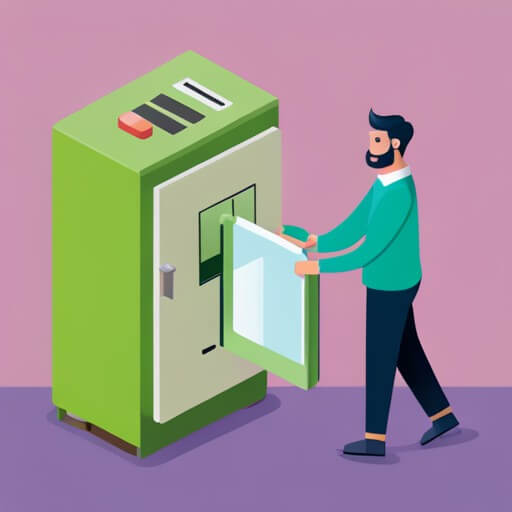Generators serve as invaluable backup power sources in various settings, ensuring uninterrupted electricity supply during outages or in remote locations. However, like any complex machinery, generators can encounter a range of failures that hinder their performance and reliability. From fuel-related issues and battery failures to cooling system problems and control panel malfunctions, understanding and addressing these common generator failures is essential for maintaining their optimal functioning. In this guide, we will explore the most frequent generator failures and provide insights into the solutions to mitigate these issues effectively. Let's dive in and discover how to keep your generator running smoothly when it matters most.
- Fuel-related issues: One of the primary causes of generator failure is fuel-related problems. These can include inadequate fuel supply, contaminated fuel, or fuel filter blockage. Insufficient fuel or contaminated fuel can prevent the generator from running or cause it to shut down unexpectedly.
- Battery failures: Generators often rely on batteries to start the engine. Battery-related failures can occur due to a dead or weak battery, loose connections, or battery deterioration over time. If the battery fails, the generator may not start or struggle to start.
- Cooling system problems: Generators require a cooling system to prevent overheating. Cooling system failures, such as coolant leaks, malfunctioning thermostats, or radiator issues, can result in the generator running at high temperatures or overheating, leading to shutdowns or damage.
- Oil-related issues: Generators require proper lubrication to ensure smooth operation. Oil-related failures can occur due to insufficient oil levels, oil leaks, or degraded oil quality. Insufficient lubrication can cause excessive friction, leading to engine damage or failure.
- Starter motor failure: The starter motor is responsible for initiating the engine's rotation. If the starter motor malfunctions or fails, the generator may not start or experience difficulties starting.
- Ignition system problems: Faulty ignition systems can prevent the generator's engine from starting or cause intermittent running issues. Issues such as spark plug failures, ignition coil problems, or ignition control module malfunctions can lead to generator failures.
- Voltage regulator failure: The voltage regulator regulates the output voltage of the generator. If the voltage regulator fails, it can result in irregular or inconsistent voltage output, potentially damaging connected devices or causing the generator to shut down.
- Control panel or control board failures: The control panel or control board is responsible for managing the generator's operations. Failures in these components can lead to various issues, including incorrect readings, failure to start or stop, or improper synchronization in case of parallel generators.
- Overload or excessive load conditions: Running a generator beyond its rated capacity or subjecting it to sudden high loads can cause it to overload and shut down. Excessive load conditions can also strain the generator's components, leading to failures.
- Lack of maintenance: Neglecting regular maintenance and servicing can contribute to generator failures. Insufficient oil changes, dirty air filters, loose connections, and other maintenance-related issues can compromise the generator's performance and reliability.
Here are some practical solutions to address and resolve common generator failures, ensuring optimal performance and reliability:
1- Fuel-related issues:
- Ensure an adequate and clean fuel supply. Regularly check fuel levels and refill as needed.
- Use high-quality fuel and store it properly to prevent contamination.
- Clean or replace fuel filters regularly to prevent blockages.
2- Battery failures:
- Inspect batteries regularly and replace them if they are weak or deteriorated.
- Keep battery connections clean and tight.
- Maintain proper battery charging by following manufacturer's recommendations.
3- Cooling system problems:
- Regularly inspect the cooling system for leaks, and promptly repair any coolant leaks.
- Clean radiator fins and ensure proper airflow around the generator.
- Check and replace thermostats or other cooling system components as needed.
4- Oil-related issues:
- Monitor oil levels regularly and maintain them within the recommended range.
- Change the generator's oil according to the manufacturer's guidelines.
- Inspect for oil leaks and promptly repair any leaks.
- Use the recommended oil type and quality.
5- Starter motor failure:
- Test the starter motor periodically to ensure proper functioning.
- Keep starter motor connections clean and secure.
- Replace the starter motor if it is damaged or malfunctioning.
6- Ignition system problems:
- Regularly inspect and clean spark plugs.
- Replace faulty spark plugs, ignition coils, or ignition control modules.
- Ensure proper grounding of ignition components.
- Follow manufacturer's recommendations for ignition system maintenance.
7- Voltage regulator failure:
- Regularly inspect and test the voltage regulator.
- Replace faulty voltage regulators.
- Maintain proper grounding and connections of the voltage regulator.
8- Control panel or control board failures:
- Regularly inspect control panels for any signs of damage or malfunction.
- Test control panel functions periodically.
- Replace faulty control panels or control board components.
9- Overload or excessive load conditions:
- Ensure the generator is not overloaded and operate it within its rated capacity.
- Distribute loads evenly among multiple generators if running in parallel.
- Avoid sudden high-load conditions and plan load transfers carefully.
10- Lack of maintenance:
- Follow the manufacturer's recommended maintenance schedule.
- Change oil, filters, and other consumables as required.
- Clean air filters regularly.
- Inspect and tighten connections periodically.
- Keep the generator and its surroundings clean.
In conclusion, when it comes to generator durability and reliable after-sales service, Genpower Generators stand out as a top choice. With their robust construction and dependable performance, Genpower Generators are designed to withstand various challenges and provide long-lasting power solutions. In the rare event of any failures, customers can rely on Genpower's experienced after-sales service, available 24/7, to promptly address and resolve any issues that may arise. With Genpower Generators, you can have peace of mind, knowing that both the product and the support are designed to deliver exceptional reliability and customer satisfaction.

